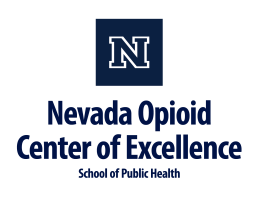Approximately 96% of persons with an identified Gambling Disorder have another co-occurring behavioral health condition, and it is often the co-occurring condition that brings the person with problems related to gambling into treatment. Evidence further suggests that only those with the most severe gambling disorder symptoms will ever seek treatment. Gambling Disorder is often a hidden addiction when it is not addressed in combination with other behavioral therapies. This training will explore evidenced based gambling screening tools that can be implemented into treatment to help identify potential harms to ongoing recovery from opioid use disorders.
Learning Objectives:
- Increase awareness of the potential harms related to gambling, the impact on the family and importance of financial wellness.
- Understand the connection between gambling and other substance use and addictive disorders and how problematic gambling may affect treatment outcomes
- Identify evidenced based gambling screening tools, ways to integrate gambling conversations into your practice, and resources to support recovery.
Presented by: Kristen Beall, LCSW-C, ICGC-II, CAC-AD, Clinical Manager, Maryland Center of Excellence on Problem Gambling, University of Maryland School of Medicine
Kristen provides consultation and practical assistance to organizations and private practitioners integrating evidenced based gambling screening, ongoing assessment, and gambling related treatment into their current practice. With 20+ years of clinical experience, Kristen is dedicated to connecting persons in the community and professionals to local gambling resources to aid in those seeking recovery and wellness. She is dedicated to helping professionals throughout Maryland understand the impact gambling can have on co-occurring disorders, medical conditions, and psychosocial factors. Kristen has a passion for working with persons affected by gambling related harms and providing education to other health professionals to increase awareness of this often, hidden addiction.
Continuing Education Units: 2 CEUs
This training is approved for continuing education by the boards listed here.
Funding for this activity was made possible in whole or in part by the Nevada Department of Health and Human Services (DHHS) Director’s Office through the Fund for a Resilient Nevada, established in Nevada Revised Statutes 433.712 through 433.744. The opinions, findings, conclusions, and recommendations expressed in our courses are those of the author(s) and do not necessarily represent the official views of the Nevada Opioid Center of Excellence or its funders.

